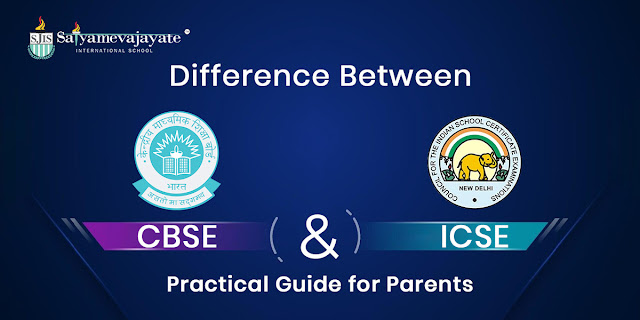Difference between CBSE and ICSE: Practical Guide for Parents
Choosing the right educational board is one of the most important decisions parents make for their child’s future. In India, the two most prominent boards – CBSE (Central Board of Secondary Education) and ICSE (Indian Certificate of Secondary Education) – each offer distinct academic structures, teaching methodologies, and evaluation styles.
This blog provides a clear, practical comparison of CBSE and ICSE, helping parents understand which board might suit their child better. Whether you’re considering academics, co-curricular opportunities, or long-term career readiness, this guide is for you.
What is the Difference Between CBSE and ICSE?
CBSE is a national-level board under the Union Government of India, whereas ICSE is a private board governed by the Council for the Indian School Certificate Examinations (CISCE).
CBSE emphasizes concept clarity, core subject understanding, and exam preparedness, while ICSE promotes in-depth knowledge, literary analysis, and broader subject exposure. The choice depends on the child’s learning style and academic goals.
Curriculum and Syllabus Structure
CBSE:
- Follows the NCERT curriculum
- Compact, exam-oriented, and streamlined
- Ideal for STEM subjects (Science, Technology, Engineering, Math)
- Simplified approach for concept clarity
ICSE:
- Detailed and literature-heavy syllabus
- Emphasizes language and theoretical understanding
- Offers wider subject choices, including arts and humanities
- Often considered more rigorous and text-rich
Example: A Class 9 student in ICSE may have to study more topics per subject compared to their CBSE counterpart.
Choosing the right board is a big decision. Discover the real difference between CBSE and ICSE to make an informed choice. To continue reading, click here: Difference between CBSE and ICSE




Comments
Post a Comment